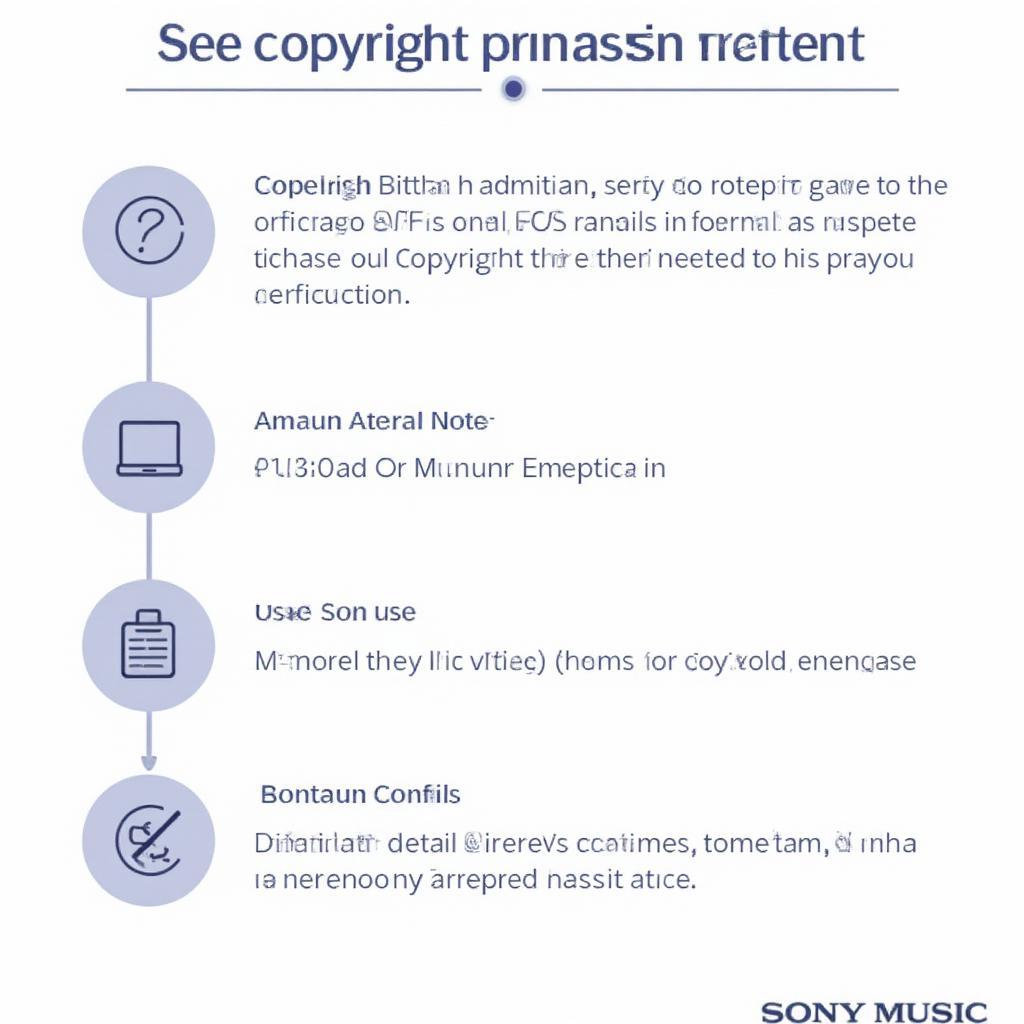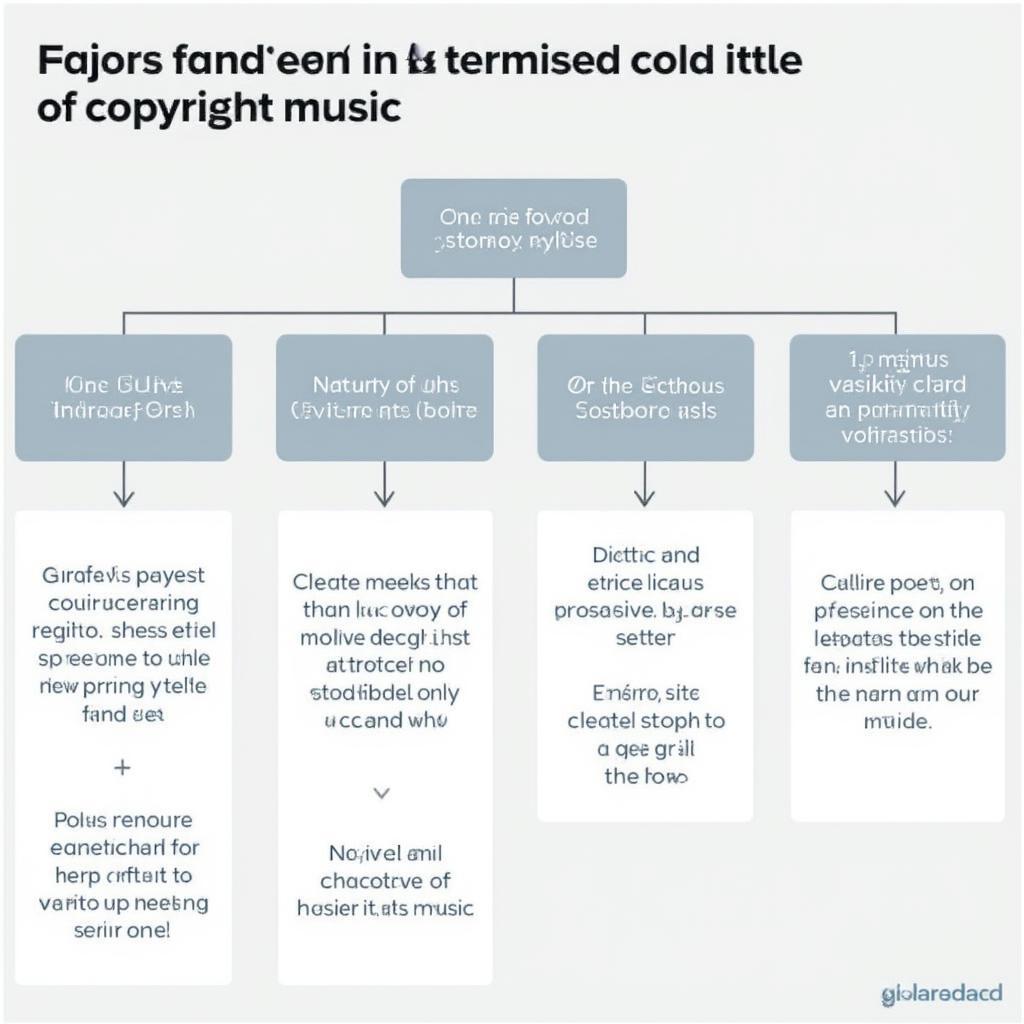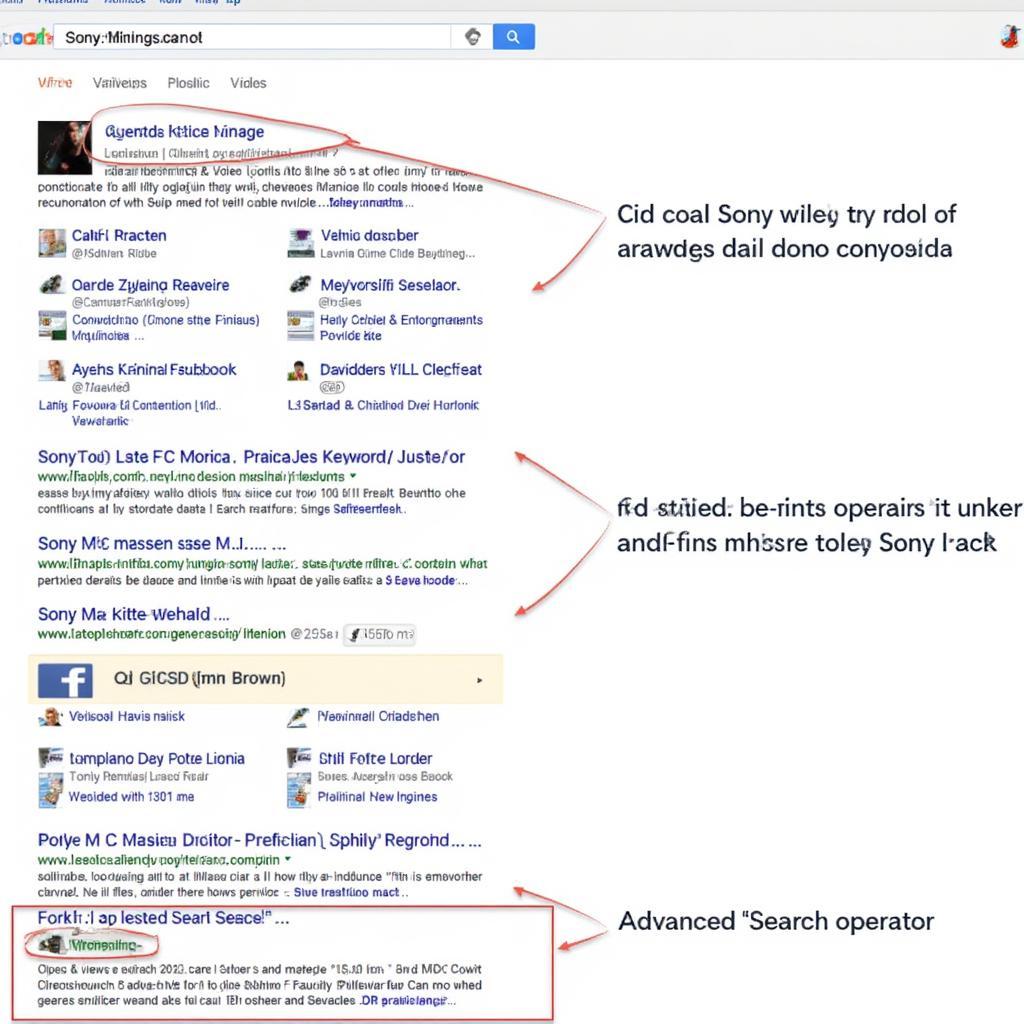Navigating Sony Music Entertainment Copyright Permission

Obtaining Sony Music Entertainment Copyright Permission is crucial for anyone wanting to use their music. This comprehensive guide explores the intricacies of Sony Music Entertainment copyright permission, providing clarity on the process and essential considerations.
Understanding copyright law is fundamental when using copyrighted material, especially music owned by major labels like Sony Music Entertainment. Their expansive catalog necessitates a clear understanding of usage rights and the permission process. Whether you’re a filmmaker, content creator, or musician, using Sony Music’s copyrighted music without permission can lead to legal ramifications. This guide will provide a detailed roadmap to navigate the complexities of securing the necessary permissions.
Understanding Sony Music Entertainment’s Copyright Policies
Sony Music Entertainment, as a major record label, holds the copyrights to a vast library of recordings, musical compositions, and associated artwork. These rights grant them exclusive control over how their music is reproduced, distributed, and publicly performed. Therefore, anyone wishing to use their music in any form, be it a song, sample, or even a short clip, must obtain permission. This permission typically involves licensing agreements that outline the permitted usage, duration, territory, and associated fees.
Different Types of Copyright Permissions from Sony Music Entertainment
Sony Music Entertainment handles permissions for two distinct aspects of music: musical compositions (the underlying melody and lyrics) and sound recordings (the specific recorded performance of a song). You may need permission for one or both, depending on your intended use. For instance, covering a song requires permission for the musical composition, while using a specific artist’s recording in a video requires permission for the sound recording. Synchronization licenses are needed to use music in visual media like films or videos, while mechanical licenses are required for reproducing and distributing copyrighted musical compositions, such as creating cover songs or producing physical albums.
How to Obtain Sony Music Entertainment Copyright Permission
The process of obtaining permission involves several key steps:
- Identify the Copyright Holder: Determine precisely which Sony Music entity (e.g., a specific label or publishing division) owns the rights to the desired music.
- Contact the Copyright Department: Reach out to Sony Music Entertainment’s copyright department through their official website or legal representatives. Clearly state your intended use, including the specific song, duration, territory, and medium. Providing detailed information upfront streamlines the process.
- Negotiate the License: Once contacted, Sony Music will provide a licensing agreement outlining the terms of use and associated fees. These fees can vary widely based on factors like the song’s popularity, the intended use, and the distribution scope. Be prepared to negotiate to reach mutually agreeable terms.
- Obtain Written Permission: Always secure written confirmation of the granted permission before using the copyrighted material. This legally binding document protects both parties and ensures clarity regarding the permitted usage.
Key Information to Include in Your Permission Request
When requesting permission, ensure you provide the following information:
- Your Name and Contact Information
- Title of the Song and Artist
- Name of the Composer and Publisher
- Intended Use (e.g., film, advertisement, online video)
- Duration of Use
- Territory of Use
- Number of Copies to be Distributed (if applicable)

What Happens If You Use Copyrighted Music Without Permission?
Using copyrighted music without permission can have serious consequences, ranging from copyright infringement notices to legal action and substantial financial penalties. Sony Music Entertainment actively protects its intellectual property and pursues infringements vigorously. Therefore, obtaining the necessary permissions is not only ethically sound but also essential to avoid legal complications.
Understanding Fair Use
While obtaining permission is the standard practice, there are limited circumstances where the “fair use” doctrine might apply. Fair use allows for the use of copyrighted material without permission for specific purposes, such as criticism, commentary, news reporting, teaching, scholarship, or research. However, fair use is determined on a case-by-case basis, considering factors like the purpose and character of the use, the nature of the copyrighted work, the amount and substantiality of the portion used, and the effect of the use on the potential market for or value of the copyrighted work. Relying on fair use without thorough legal understanding is highly discouraged, as it is a complex and often misinterpreted aspect of copyright law.

Conclusion
Obtaining Sony Music Entertainment copyright permission is a necessary step for anyone wanting to legally and ethically use their music. By understanding the process, providing accurate information, and respecting copyright laws, you can ensure a smooth and legally sound experience. Always prioritize obtaining explicit permission to avoid potential legal issues and foster a respectful relationship with copyright holders. This proactive approach will contribute to a thriving creative environment that respects intellectual property rights.
Frequently Asked Questions
- How long does it take to get copyright permission from Sony Music? The processing time for permission requests can vary, often taking several weeks or even months.
- How much does it cost to license music from Sony Music? Licensing fees vary significantly based on factors like the song, usage, and distribution scope.
- Can I use a small portion of a song without permission? Using any portion of a copyrighted song without permission generally constitutes infringement, unless it falls under fair use.
- What is a synchronization license? A synchronization license allows you to use music in conjunction with visual media like videos or films.
- What is a mechanical license? A mechanical license allows you to reproduce and distribute copyrighted musical compositions.
- Where can I find Sony Music Entertainment’s contact information for copyright inquiries? Contact information is typically available on their official website in the legal or copyright section.
- What happens if I don’t get permission and use the music anyway? You risk legal action, including copyright infringement lawsuits and potential financial penalties.
- Is there a way to expedite the permission process? Providing clear, comprehensive information upfront can help streamline the process.
- Can I use Sony Music Entertainment’s music for free for non-commercial purposes? Generally, no. Even non-commercial use often requires permission and potentially licensing fees.




